COVID-19: TCTMD’s Daily Dispatch for March Week 1
We’re curating a list of COVID-19 research and other useful content, and updating it daily.
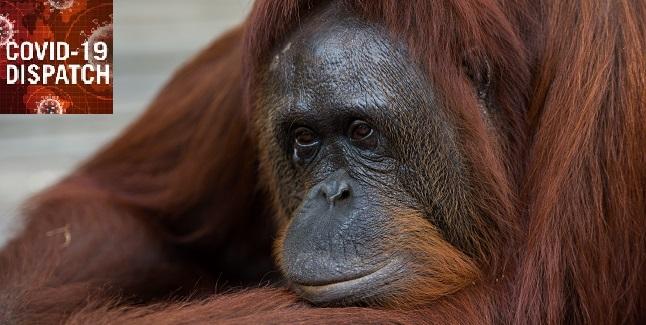
TCTMD reporter Todd Neale is keeping up on breaking news and peer-reviewed research related to COVID-19 and will update daily. If you have something to share, tell us. All of our COVID-19 coverage can be found on our COVID-19 Hub.
March 5, 2021
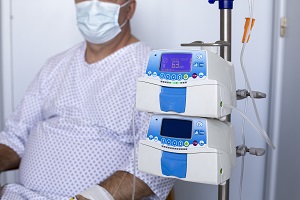 Most COVID-19 deaths (88%) have occurred in countries where the majority of residents are overweight, according to a World Obesity Federation report. “This report shows that in countries where less than half the adult population is classified as overweight, the likelihood of death from COVID-19 is a small fraction—around one-tenth—of the level seen in countries where more than half the population is classified as overweight.”
Most COVID-19 deaths (88%) have occurred in countries where the majority of residents are overweight, according to a World Obesity Federation report. “This report shows that in countries where less than half the adult population is classified as overweight, the likelihood of death from COVID-19 is a small fraction—around one-tenth—of the level seen in countries where more than half the population is classified as overweight.”
A CIDRAP News story notes that the Fiocruz Institute in Brazil warned that for the first time in the country, several indicators are worsening simultaneously, with ICU bed occupancy above 80% in 19 of Brazil's 27 federal districts. The statement was translated and posted by Avian Flu Diary, an infectious diseases blog. In addition, cases are surging in central and eastern Europe, with increases also occurring in many western European countries. According to a World Health Organization (WHO) official, more than half of the region is seeing increasing COVID-19 numbers.
The New York Times reports that some scientists are questioning the WHO’s inquiry into the origins of the pandemic, with those who suspect that the virus emerged from a laboratory in China calling for an independent investigation. Read the open letter here. “Because we believe the joint team process and efforts to date do not constitute a thorough, credible, and transparent investigation, we call on the international community to put in place a structure and process that does,” the authors write. The Washington Post has more.
 Italy stopped shipment of more than 250,000 doses of the Oxford/AstraZeneca vaccine from Europe to Australia, “in the first use of an export control system instituted by the bloc to make sure big pharma companies would respect their contracts,” the Associated Press reports. France and European Union officials defended the move. Meanwhile, over in North America, Ontario Premier Doug Ford expressed disappointment that US President Joe Biden has refused to ship COVID-19 vaccines over the border to Canada.
Italy stopped shipment of more than 250,000 doses of the Oxford/AstraZeneca vaccine from Europe to Australia, “in the first use of an export control system instituted by the bloc to make sure big pharma companies would respect their contracts,” the Associated Press reports. France and European Union officials defended the move. Meanwhile, over in North America, Ontario Premier Doug Ford expressed disappointment that US President Joe Biden has refused to ship COVID-19 vaccines over the border to Canada.
The occurrence of COVID-19 in children may be grossly under-recognized, a study in Morbidity and Mortality Weekly Report suggests. Serologic testing of blood specimens collected between May and September from children and teens in Mississippi suggested that 16.3% of those kids—113,842—might have been infected with SARS-CoV-2. However, only 8,993 confirmed or probable cases had been reported to the state’s health department by the end of August.
As seen elsewhere around the world, during the first wave of COVID-19 in Northern Italy, there was a 20% reduction in hospitalizations for MI compared with what would normally be expected, according to a study in the Lancet Regional Health – Europe. Investigators also observed a corresponding increase in the number of out-of-hospital cardiac deaths in 2020, which they believe might result from patients ignoring MI symptoms and avoiding hospitals during the pandemic. “We think it was more than a coincidence,” the senior investigator told TCTMD’s Michael O’Riordan.
The US Food and Drug Administration (FDA) issued a warning about thermal imaging devices, or “fever cameras,” that are being improperly used to check people for signs of infection during the pandemic: “Improper use of thermal imaging systems may lead to inaccurate body temperature measurements which can present potentially serious public health risks.” The agency also warned several companies about offering unapproved thermal imaging systems for sale. “While thermal imaging is not an effective diagnostic device for COVID-19, it can determine if someone has an elevated temperature, which can be an important risk management tool during the pandemic when used properly,” an FDA official said in a press release.
A 5-day course of ivermectin does not affect the duration of symptoms in adults with mild COVID-19 (median 10 vs 12 days with placebo; P = 0.53), randomized data published in JAMA show. By day 21, the proportion of patients with resolved symptoms was 82% in the ivermectin group and 79% in the placebo group. “The findings do not support the use of ivermectin for treatment of mild COVID-19, although larger trials may be needed to understand effects on other clinically relevant outcomes,” the researchers conclude.
The ACTIV-3 trial sponsored by the US National Institutes of Health (NIH) has closed enrollment in two substudies evaluating investigational monoclonal antibody therapies in hospitalized COVID-19 patients due to futility. One was evaluating VIR-7831 and the other a combination of BRII-196 and BRII-198. There were no safety concerns.
 Four orangutans and five bonobos living at the San Diego Zoo have become the first nonhuman primates to be vaccinated against COVID-19, each receiving two doses of vaccine made specifically for animals, the Washington Post reports. The apes have responded well to the vaccine, the zoo said.
Four orangutans and five bonobos living at the San Diego Zoo have become the first nonhuman primates to be vaccinated against COVID-19, each receiving two doses of vaccine made specifically for animals, the Washington Post reports. The apes have responded well to the vaccine, the zoo said.
March 4, 2021
 Reactions to Texas’ decision to lift mask mandates and open up businesses are starting to come in, with President Joe Biden chalking it up to “Neanderthal thinking,” the Associated Press reports. Some businesses, like Target and Starbucks, have said that they’ll continue to require masks inside their stories. Anthony Fauci, MD, director of the US National Institute of Allergy and Infectious Diseases (NIAID), told CNN that lifting restrictions in this way is “ill-advised” and “inexplicable,” adding, “I understand the need to want to get back to normality, but you're only going to set yourself back if you just completely push aside the public health guidelines—particularly when we're dealing with anywhere from 55 to 70,000 infections per day in the United States.”
Reactions to Texas’ decision to lift mask mandates and open up businesses are starting to come in, with President Joe Biden chalking it up to “Neanderthal thinking,” the Associated Press reports. Some businesses, like Target and Starbucks, have said that they’ll continue to require masks inside their stories. Anthony Fauci, MD, director of the US National Institute of Allergy and Infectious Diseases (NIAID), told CNN that lifting restrictions in this way is “ill-advised” and “inexplicable,” adding, “I understand the need to want to get back to normality, but you're only going to set yourself back if you just completely push aside the public health guidelines—particularly when we're dealing with anywhere from 55 to 70,000 infections per day in the United States.”
As states like Texas and Mississippi drop COVID-19-related restrictions and vaccinations roll out, the American Heart Association (AHA), based in Dallas, is reiterating its support for the continuation of basic safety measures, noting that the virus situation remains serious. They advocate for the three Ws—wear a mask, watch your distance, and wash your hands—and urge everyone to get vaccinated as soon as its available to them. “The pandemic continues to have devastating consequences across the country in urban, suburban and rural areas impacting far too many individuals and families, with a disproportionate effect on communities of color, historically under-resourced neighborhoods and essential workers. These are the facts,” a statement reads.
 On Wednesday, Canada's National Advisory Committee on Immunization (NACI) recommended stretching the interval between the first and second doses of COVID-19 vaccine to up to 4 months in order to increase the number of people vaccinated. If such an interval is adopted this month, about 80% of the eligible population could receive at least one dose by the end of June, the committee estimated.
On Wednesday, Canada's National Advisory Committee on Immunization (NACI) recommended stretching the interval between the first and second doses of COVID-19 vaccine to up to 4 months in order to increase the number of people vaccinated. If such an interval is adopted this month, about 80% of the eligible population could receive at least one dose by the end of June, the committee estimated.
The Covaxin COVID-19 vaccine made by the Indian company Bharat Biotech is 81% effective at preventing disease, according to interim phase III data released Wednesday. As NPR notes, the vaccine was approved in India in early January while trials were still ongoing, sparking controversy.
The head of the Pan American Health Organization (PAHO) said yesterday that surges of COVID-19 cases are straining some health systems in South America, CIDRAP News reports. “The region's main hot spot is the northern Amazon basin, including Peru's Amazonian state of Loretto, where [ICU] beds are filled with COVID-19 patients, and Colombia's Amazonas state, which is reporting that country's highest case levels,” according to the story. In Brazil, the Amazon state of Acre has 94% of ICU beds filled due to the combination of COVID-19, a dengue epidemic, and flooding.
STAT’s Andrew Joseph and Helen Branswell explore what the short-, middle-, and long-term future of the COVID-19 situation will look like. “When experts envision the future of the coronavirus, many predict that it will become a seasonal pathogen that won’t be much more than a nuisance for most of us who have been vaccinated or previously exposed to it,” they write. That idea is discussed in a JAMA viewpoint. “But how long that process takes—and how much damage the virus inflicts in the interim—is still anyone’s guess.”
 Saudi Arabia’s health ministry has said that only people who have been vaccinated against COVID-19 will be allowed to attend the Hajj this year, Al Jazeera reports. Last year, “the kingdom dramatically reduced the number of pilgrims allowed to attend Hajj to about 1,000 Saudi citizens and residents of the kingdom, in order to help prevent the spread of the coronavirus, after barring Muslims abroad from the rite for the first time in modern times.”
Saudi Arabia’s health ministry has said that only people who have been vaccinated against COVID-19 will be allowed to attend the Hajj this year, Al Jazeera reports. Last year, “the kingdom dramatically reduced the number of pilgrims allowed to attend Hajj to about 1,000 Saudi citizens and residents of the kingdom, in order to help prevent the spread of the coronavirus, after barring Muslims abroad from the rite for the first time in modern times.”
The European Medicines Agency (EMA) has initiated a rolling review of the Sputnik V COVID-19 vaccine developed by Russia’s Gamaleya National Centre of Epidemiology and Microbiology. Interim phase III results published back at the beginning of February showed the vaccine to be 91.6% effective. The EMA also released monthly safety updates on COVID-19 vaccines from Moderna and Pfizer/BioNTech. The benefits of both continue to outweigh the risks, the agency says, noting that diarrhea and vomiting have been identified as new side effects with the Pfizer/BioNTech vaccine.
Some patients may develop a delayed rash after receiving the Moderna vaccine, according to an analysis of 12 patients who had large local reactions a median of 8 days after receiving their first shots. As reported in the New England Journal of Medicine, “five of the reactions were grade 3 plaques (≥ 10 cm in diameter). Some patients had concurrent systemic adverse effects, and among these patients, two had additional skin findings.” Symptoms resolved after a median of 6 days, and all patients received their second shots; recurrent reactions occurred in half.
The US Centers for Disease Control and Prevention (CDC) was expected to release guidelines for vaccinated people on Thursday, but they have been delayed, Politico reports. The reason for the delay is unclear, but the story says a senior administration official indicated the guidance was still being finalized.
March 3, 2021
An article published Wednesday in the New York Times carries the headline: “Brazil’s Covid Crisis Is a Warning to the Whole World, Scientists Say.” The country is currently experiencing a record number of deaths as well as the spread of a more-infectious SARS-CoV-2 variant that recent research suggests is reinfecting people who have already recovered from COVID-19. “No other nation that experienced such a major outbreak is still grappling with record-setting death tolls and a healthcare system on the brink of collapse,” the story notes.
 If Brazil’s situation is a warning, it’s not being heeded in Texas and other US states, like Louisiana, Michigan, and Mississippi, that started lifting mask mandates and loosening COVID-19 restrictions this week, as reported by the Associated Press. In Texas and Mississippi, businesses will be allowed to open at full capacity. Recently, top health officials have warned about the dangers of lifting restrictions too soon and risking another surge in cases.
If Brazil’s situation is a warning, it’s not being heeded in Texas and other US states, like Louisiana, Michigan, and Mississippi, that started lifting mask mandates and loosening COVID-19 restrictions this week, as reported by the Associated Press. In Texas and Mississippi, businesses will be allowed to open at full capacity. Recently, top health officials have warned about the dangers of lifting restrictions too soon and risking another surge in cases.
The island nation of Seychelles expects to reach herd immunity within weeks, the Associated Press reports. President Wavel Ramkalawan said that goal should be reached in mid-March, after 70,000 of the country’s 100,000 residents are vaccinated. About 44% of the population had received two doses of vaccine by the end of February.
A modeling study in Science affirms that the B.1.1.7 variant that was first detected in the United Kingdom is more transmissible than previous strains. The researchers issue a dire prediction based on the results: “Without stringent control measures, including limited closure of educational institutions and a greatly accelerated vaccine rollout, COVID-19 hospitalizations and deaths across England in 2021 will exceed those in 2020.” They note that the variant has spread globally.
 Merck is going to help competitor Johnson & Johnson make its Janssen COVID-19 vaccine, White House Press Secretary Jen Psaki announced during a Tuesday press conference. “Merck will produce the drug substance at the heart of Johnson & Johnson's vaccine as well as work on filling vaccine vials and getting them ready for distribution,” NPR reports. Psaki said the US government will invoke the Defense Production Act to equip two Merck facilities for this purpose and will ask the Department of Defense to provide logistical support for Johnson & Johnson’s efforts.
Merck is going to help competitor Johnson & Johnson make its Janssen COVID-19 vaccine, White House Press Secretary Jen Psaki announced during a Tuesday press conference. “Merck will produce the drug substance at the heart of Johnson & Johnson's vaccine as well as work on filling vaccine vials and getting them ready for distribution,” NPR reports. Psaki said the US government will invoke the Defense Production Act to equip two Merck facilities for this purpose and will ask the Department of Defense to provide logistical support for Johnson & Johnson’s efforts.
President Joe Biden called on US states to prioritize vaccinations for teachers to facilitate a return to school for children, saying every education should receive at least one shot by the end of the month, Reuters reports. With a nod to the arrangement between Merck and Johnson & Johnson, Biden expressed confidence about having enough vaccine doses for every US adult by the end of May.
The US Centers for Disease Control and Prevention (CDC) is expected to soon allow small, maskless gatherings of fully vaccinated people, according to comments made during a meeting of the White House COVID-19 task force. Anthony Fauci, MD, director the US National Institute of Allergy and Infectious Diseases (NIAID), said that risk of spreading SARS-CoV-2 at such an event is low, the Los Angeles Times reports.
A panel from the World Heart Organization (WHO) issued a strong recommendation against hydroxychloroquine use to prevent COVID-19 after a review of data from six randomized trials showed that the strategy had a small or no effect on mortality and hospitalization, CIDRAP News reports. “The panel considers that this drug is no longer a research priority and that resources should rather be oriented to evaluate other more promising drugs to prevent COVID-19.”
Overall, 30% of randomized trials evaluating strategies for COVID-19 treatment or prevention that were launched in the first 100 days of the pandemic never started recruiting patients, and only 10% had results reported by mid-October, “suggesting the possibility of substantial research waste,” according to a study in JAMA Network Open. “Successfully conducting a trial during a pandemic is challenging,” they acknowledge. “Nevertheless, collaborative efforts such as consortiums of trials prospectively planning to pool their results and adaptive platform trials such as the RECOVERY trial are promising approaches to provide reliable and timely evidence.”
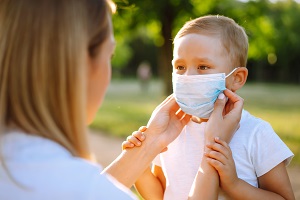 In a study of 47 infants and children in Italy, wearing surgical face masks for 30 minutes was not associated with any changes in respiratory parameters or clinical signs of respiratory distress. The findings, published in JAMA Network Open, “suggest that the use of surgical masks among children may be promoted during the . . . pandemic, especially in view of the reopening of schools,” the researchers say.
In a study of 47 infants and children in Italy, wearing surgical face masks for 30 minutes was not associated with any changes in respiratory parameters or clinical signs of respiratory distress. The findings, published in JAMA Network Open, “suggest that the use of surgical masks among children may be promoted during the . . . pandemic, especially in view of the reopening of schools,” the researchers say.
March 2, 2021
The worldwide decline in COVID-19 cases, which was recently shown to have slowed in the United States, is now stalling more broadly. The World Health Organization (WHO) announced Monday that the global number of cases rose for the first time in nearly 2 months, “blaming the surge in infections on circulating variants and premature efforts to lift public health restrictions,” the Washington Post reports. A senior WHO official said it was both “premature” and “unrealistic” to think the pandemic will be over by the end of the year, even though vaccines could lead to large reductions in hospitalizations and deaths, according to the Associated Press.
Some Caribbean countries are going through their worst COVID-19 outbreaks yet, Reuters reports. For instance, in Jamaica, “which won praise for containing its coronavirus outbreak last year, patients now overflow into corridors on chairs and stretchers in some hospitals, prompting the Caribbean nation to open three emergency field hospitals.” Cases have also risen markedly in Cuba, Barbados, St. Lucia, and St. Vincent and the Grenadines.
 US Centers for Disease Control and Prevention Director Rochelle Walensky, MD, warned states against loosening restrictions and undoing the recent progress that has been made in curtailing COVID-19, ABC News reports. “I understand the temptation to do this—70,000 cases a day seems good compared to where we were just a few months ago—but we cannot be resigned to 70,000 cases a day, 2,000 daily deaths.”
US Centers for Disease Control and Prevention Director Rochelle Walensky, MD, warned states against loosening restrictions and undoing the recent progress that has been made in curtailing COVID-19, ABC News reports. “I understand the temptation to do this—70,000 cases a day seems good compared to where we were just a few months ago—but we cannot be resigned to 70,000 cases a day, 2,000 daily deaths.”
On Monday, Public Health England (PHE) released a preprint study showing that both the Pfizer/BioNTech and Oxford/AstraZeneca vaccines are highly effective at reducing COVID-19 in people 70 and older. Four weeks after the first dose, protection against symptomatic disease was 57% to 61% with the Pfizer/BioNTech vaccine and 60% to 73% with the Oxford/AstraZeneca vaccine. In people older than 80, a single dose of either vaccine was more than 80% effective at preventing hospitalization, with some evidence that the Pfizer/BioNTech vaccine cut deaths by 83%. “While there remains much more data to follow, this is encouraging and we are increasingly confident that vaccines are making a real difference,” the PHE head of immunization said in a press release.
KHN provides a roundup of news involving SARS-CoV-2 variants in the United States, noting that Houston has become the first American city to record all major variants; a variant that emerged in New York City in November now accounts for about 735 cases across the country; and a strain in Brazil was shown to reinfect many people in the Amazonian city of Manaus who had recovered from a prior bout of COVID-19.
 The Advisory Committee on Immunization Practices (ACIP), which provides guidance to the US Centers for Disease Control and Prevention (CDC), has published its interim recommendation for use of the Janssen COVID-19 vaccine from Johnson & Johnson that was recently authorized for emergency use. The vaccine is recommended for people 18 and older. “Persons may receive any ACIP-recommended COVID-19 vaccine and are encouraged to receive the earliest vaccine available to them,” the authors say. JAMA has a Patient Page providing information about the vaccine.
The Advisory Committee on Immunization Practices (ACIP), which provides guidance to the US Centers for Disease Control and Prevention (CDC), has published its interim recommendation for use of the Janssen COVID-19 vaccine from Johnson & Johnson that was recently authorized for emergency use. The vaccine is recommended for people 18 and older. “Persons may receive any ACIP-recommended COVID-19 vaccine and are encouraged to receive the earliest vaccine available to them,” the authors say. JAMA has a Patient Page providing information about the vaccine.
Today, the European Medicines Agency (EMA) and Health Canada together published the full clinical data that were reviewed as part of the regulators’ respective authorizations of the Moderna COVID-19 vaccine. The EMA also announced that its human medicines committee will meet on March 11 to consider the Janssen vaccine.
In yet another knock on convalescent plasma for the treatment of COVID-19, the US National Institutes of Health (NIH) has stopped the C3PO trial evaluating the therapy in patients presenting to the emergency department with mild-to-moderate symptoms. An interim analysis showed the treatment was safe but was unlikely to provide a benefit.
The NIH also announced that it has launched a new initiative aimed at understanding the multisystem inflammatory syndrome in children (MIS-C) associated with SARS-CoV-2 infection—called CARING for Children With COVID. Children account for roughly 13% of all COVID-19 cases in the United States.
 A previous SARS-CoV-2 infection may help boost response to vaccination, according to a study in JAMA. Healthcare workers with a prior infection had higher antibody titer responses to a single dose of mRNA vaccine than did those who were not previously infected. “Given the ongoing worldwide vaccine shortages, the results inform suggestions for a single-dose vaccination strategy for those with prior COVID-19 or placing them lower on the vaccination priority list,” the authors write.
A previous SARS-CoV-2 infection may help boost response to vaccination, according to a study in JAMA. Healthcare workers with a prior infection had higher antibody titer responses to a single dose of mRNA vaccine than did those who were not previously infected. “Given the ongoing worldwide vaccine shortages, the results inform suggestions for a single-dose vaccination strategy for those with prior COVID-19 or placing them lower on the vaccination priority list,” the authors write.
March 1, 2021
As expected, the US Food and Drug Administration (FDA) issued an emergency use authorization (EUA) for the Janssen COVID-19 vaccine from Johnson & Johnson after a favorable recommendation from an advisory committee late last week. The vaccine becomes the third available to Americans, but the first that requires only one dose. It was endorsed by the US Centers for Disease Control and Prevention (CDC) for people 18 and older on Sunday, with shots to start being administered within the next few days, according to the Washington Post. As STAT reports, the US government has purchased 100 million doses of the Janssen vaccine, but supplies are expected to be “scarce” until at least April.
The FDA also issued an EUA for the Quidel QuickVue At-Home COVID-19 test on Monday. Available by prescription, the antigen test allows consumers to use self-collected nasal swabs to obtain results without sending a sample to a laboratory.
Using vaccines provided by the World Health Organization’s COVAX initiative, African nations have begun large-scale immunization drives, first in Ivory Coast and Ghana, BBC News reports. Ghana’s President Nana Akufo-Addo became the first in his country to receive a shot. He “urged people to get inoculated and not to believe conspiracy theories casting doubt on the program, which will see some 600,000 doses of the Oxford-AstraZeneca vaccine rolled out nationwide on Tuesday.”
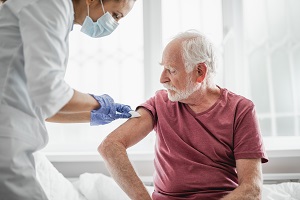 An analysis in Morbidity and Mortality Weekly Report indicates that Israel’s national COVID-19 vaccination program, which prioritized older individuals, healthcare workers, and those with underlying conditions, was associated with a reduction in the number of COVID-19 patients who required mechanical ventilation. Since implementation of the second dose, the ratio of patients 70 or older who required mechanical ventilation to those younger than 50 declined by 67%.
An analysis in Morbidity and Mortality Weekly Report indicates that Israel’s national COVID-19 vaccination program, which prioritized older individuals, healthcare workers, and those with underlying conditions, was associated with a reduction in the number of COVID-19 patients who required mechanical ventilation. Since implementation of the second dose, the ratio of patients 70 or older who required mechanical ventilation to those younger than 50 declined by 67%.
Use of ACE inhibitors/ARBs was not associated with risk of hospitalization for COVID-19, or with in-hospital mortality for those who were admitted, dimming hopes that these agents might be protective against severe illness. “Despite early evidence for a potential association between ACE inhibitors and severe COVID‐19 prevention in older individuals, the inconsistency of this observation in recent data argues against a role for prophylaxis,” write the authors of a study published in the Journal of the American Heart Association. At least four randomized clinical trials testing ACE inhibitors/ARBs against COVID-19 are ongoing, the authors note.
 More observational data point toward a potential protective effect of statins against COVID-19. A study in Nature Communications shows that early on during the pandemic in New York City, patients who were already taking statins before being hospitalized for COVID-19 were less likely to die over the short term. That’s consistent with other analyses that have come out in the past year. “We have enough evidence now to establish that statins may be a promising treatment strategy for patients with COVID because of their antithrombotic, anti-inflammatory, and immunomodulatory effects, and as such we really do need to pay close attention to randomized controlled trial evidence,” the lead author told TCTMD.
More observational data point toward a potential protective effect of statins against COVID-19. A study in Nature Communications shows that early on during the pandemic in New York City, patients who were already taking statins before being hospitalized for COVID-19 were less likely to die over the short term. That’s consistent with other analyses that have come out in the past year. “We have enough evidence now to establish that statins may be a promising treatment strategy for patients with COVID because of their antithrombotic, anti-inflammatory, and immunomodulatory effects, and as such we really do need to pay close attention to randomized controlled trial evidence,” the lead author told TCTMD.
A paper in JACC: Basic to Translational Science goes over five things every cardiologist should know about the SARS-CoV-2 variants, including their effects on transmissibility, virulence, and vaccine efficacy. “Given that each newly infected person represents an opportunity to acquire new mutations and develop novel variants, slowing the spread of the virus through continued public health interventions not only is critical to prevent further morbidity and mortality, but also can potentially impact the emergence of viral variants,” the authors write.
The overall household risk of transmitting SARS-CoV-2 is 10.1% based on data from electronic medical records, “consistent with reported transmission risk based on more traditional contact tracing,” researchers report in JAMA Network Open. Electronic medical record data may support intensive infection control efforts,” they conclude.
 As observed around the world, a COVID-19-related lockdown in the most affected region of France was associated with a significant drop in stroke/TIA hospitalizations, with a fast recovery once it was lifted, according to a study in Stroke. The least-affected region did not see a significant drop in hospitalizations. Mortality was higher in stroke patients with versus without COVID-19.
As observed around the world, a COVID-19-related lockdown in the most affected region of France was associated with a significant drop in stroke/TIA hospitalizations, with a fast recovery once it was lifted, according to a study in Stroke. The least-affected region did not see a significant drop in hospitalizations. Mortality was higher in stroke patients with versus without COVID-19.
COVID-19: TCTMD’s Daily Dispatch for February 2021 Week 4
COVID-19: TCTMD’s Daily Dispatch for February 2021 Week 3
COVID-19: TCTMD’s Daily Dispatch for February 2021 Week 2
COVID-19: TCTMD’s Daily Dispatch for February 2021 Week 1
Todd Neale is the Associate News Editor for TCTMD and a Senior Medical Journalist. He got his start in journalism at …
Read Full Bio

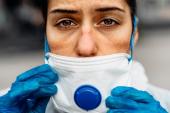

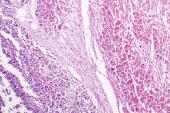
Comments